
Download the Levelling the Playing Field Playbook!
Levelling the Playing Field has published a Playbook to proudly showcase the positive impact of our partners across England and Wales.

Levelling the Playing Field has published a Playbook to proudly showcase the positive impact of our partners across England and Wales.

Seventeen-year-old Dylan is set to complete a remarkable journey from serving a sentence inside HMP & YOI Parc to returning through the gates as a trainee rugby coach.

“For me, there’s no such thing as ‘hard to reach’ young people. That just means you’re not working hard enough to engage them.” - Richard White, Community Director at Ballers Academy
Just across the Thames from the looming skyscrapers of Canary Wharf is Rotherhithe – a different world from London’s high-rolling financial district.
Rotherhithe has a large housing estate located within the bend in the river which features in BBC soap Eastenders. There, you’ll find Ballers Academy; part of Levelling the Playing Field’s network of specialist partners in London.
Ballers Academy use football and other sports as a vehicle to engage local young people who may otherwise get caught up in crime and anti-social behaviour. Their Friday night community sessions have proven so popular (with up to 50 attending each week) that they have now started others in nearby Lewisham and Southwark.
Through football, the Academy’s coaches and mentors gradually build relationships with local young people. That mutual trust allows staff to guide them towards follow-up opportunities such as volunteering, education, training and employment.
As well as community sessions, Ballers Academy also run award-winning coaching for all age groups which over the years has produced several professional players. They also provide coaching for children and adults with disabilities and special needs, plus sessions for girls and older people.

In 2019, Ballers Academy founded grassroots club Canada Water FC to provide competitive football for local youngsters. The club has now grown to four youth sides and one adult disability team.
These opportunities, on and off the pitch, offer participants in community sessions a clear pathway to achieve positive outcomes of their choice – whether it’s playing competitive grassroots football or working towards a career in the game in whatever form.
“We use football as a platform to steer them on the right path and inspire them to what they want to achieve,” says Ballers Academy’s Community Director, Richard White, who has 23 years’ experience of serving the community and contributing positively towards society.
“Our staff keep things fun and develop trust with young people gradually. You’re not going to get to know them on the first night, it’s about developing trust over time and having friendly banter, in a professional manner. It’s small steps, but before you know it, you’re in a position where they will be ready and open to taking the next phase in their development.
“Young people come to our programmes because they enjoy playing football. Football might not end up being their career, but they might go into volunteering, mentoring or take their coaching or refereeing badges.”
The Academy has formed fruitful partnerships with local agencies. For example, Southwark’s Youth Offending Service now refer young people who have been caught up with the police to Ballers Academy as a form of positive engagement.
Ballers Academy has also partnered with Southwark Young Advisors, who promote football sessions during the outreach work on the streets through the borough. The Academy is also well connected with local schools and colleges.

Ballers Academy is part of a consortium led by Active Communities Network, who helped them run a Level 1 Sports Leaders course last summer (see above). Fourteen young people took part in the four-day programme then volunteered as leaders at a Ballers Academy children’s summer camp.
“Those youngsters essentially gave up their summer holidays to pursue that opportunity,” says Richard. “They gave back their own time, which showed they are thinking about their careers and how they can progress in sport.”
Using funding from the Youth Justice Sport fund, Ballers Academy has upskilled one local youngster, Dashaun, to work as a mentor with participants in the community programme. He started at the Ballers Academy sessions himself, then after returning from university was keen to develop in coaching and mentoring.
These kinds of positive outcomes show why Ballers Academy are a perfect fit within the Levelling the Playing Field network and the pursuit of our common goals:
Richard says: “Our programmes are more needed now than they ever have been with the cost of living, funding cuts and the lack of opportunities for young people.
“Our aim is to ensure nobody from deprived communities is denied the same opportunities as anybody else. Many of them are tagged with the stigma of being ‘hard to reach.’ For me, there’s no such thing. That just means you’re not working hard enough to engage them.
“An equal platform is absolutely key to improving community cohesion. I’ve lived in Southwark all my life and care passionately about giving young people a chance to achieve.”
For more on Ballers Academy: Website, Twitter, Instagram, TikTok, YouTube

We speak to two more specialist partners in the Levelling the Playing Field network for insight into how faith contributes to the positive impact they have on ethnically diverse children.

The amazing work of Levelling the Playing Field’s specialist partners impacts first and foremost on young people – but it has a knock-on effect on the lives of their parents too.

Reon Abrams from Wolverhampton says the supportive environment of his football club prevented him from becoming involved in “the drama and nonsense on the road” as he was growing up.

Young people from across the Levelling the Playing Field network gave delegates at the Include Summit a powerful and moving insight into how sport and physical activity has enriched their lives.
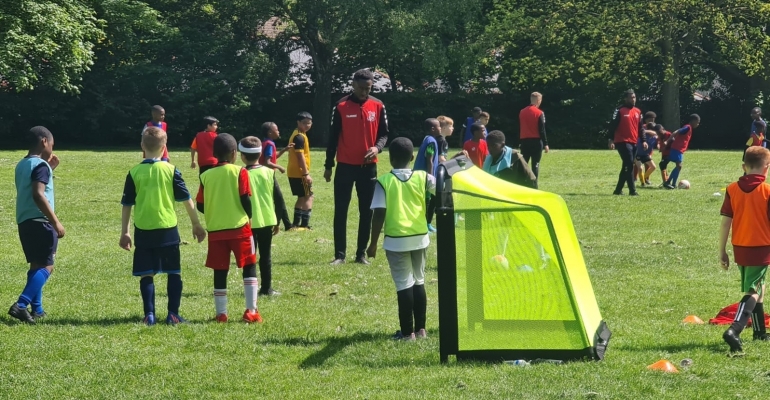
Specialist partners in the Levelling the Playing Field network have explained why faith is a major factor in being able to achieve their positive impact on ethnically diverse children.

Dallaglio RugbyWorks, who use rugby to engage young people inside HMP & YOI Parc in Bridgend, have joined Levelling the Playing Field as a specialist partner.
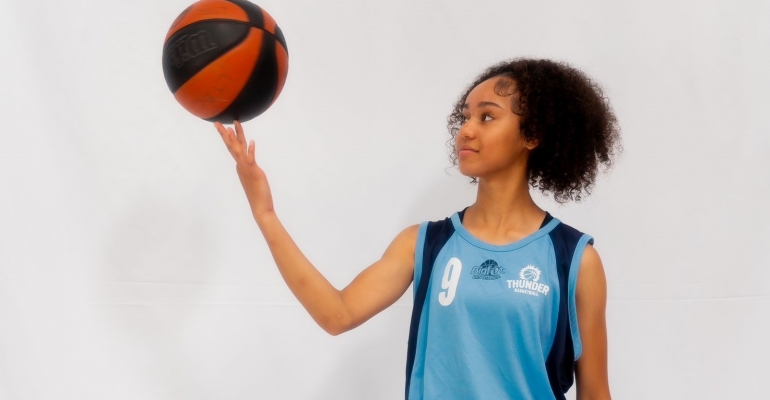
Josie Furner, Levelling the Playing Field’s 2023 London ‘Young Person of the Year,’ says the team at our specialist partners London Thunder Basketball Club are “like a second family.”
The 15 year old has played basketball at the club in Lewisham, south east London, for almost half her life. The sport and the supportive club environment have given her confidence, leadership skills, positive engagement and belief in her abilities on and off the court.
Josie and her sister Christabel started off participating in the club’s mixed community sessions, which are now part of the Levelling the Playing Field project.
A girls’ team was quickly built around Josie as coaches realised they needed to develop her notable ability. She is now captain of the Under-16s, plays for the club’s women’s team and represents London in national junior competitions. She is part of Basketball England’s ‘Aspire’ regional talent programme.
"She has been a shining light to getting other girls involved and a great example to kids at that level," said London Thunder coach Dejan Paunovic.
Josie was the star turn of the Levelling the Playing Field London Regional Awards on 1 March at the flagship Decathlon store at Canada Water. As regional winner, she now goes through to our LtPF national awards in July to compete against young people from our other delivery areas, the West Midlands, South Yorkshire and Gwent.

London Thunder are specialist partners of Levelling the Playing Field because they use basketball as an engagement tool to prevent and divert ethnically diverse children from becoming involved in the gang and crime-related activity that is prevalent in the borough.
“That purpose is the core of the club and the family,” explains management team member Nikki Sealy. “Every young person in this community is vulnerable to being exploited or groomed.
“It’s not because you’ve got a lack of something or because you are disadvantaged that you could be vulnerable to that situation. Young people face that every day. They have to negotiate their way through social circles and peer groups. It’s not always easy.”
Nikki also praised Josie for responding strongly to the adversity of lockdown. She said: “Josie has stuck at basketball through Covid, which came at a bad time as she was flying on the Basketball England ‘Aspire’ programme.
“We were all impacted by having to shut down, but she came back stronger and I think that’s testament to her character.
“Without question, the team looks up to her. They rely on her calmness and incredible resilience. We know she’s got a great future ahead of her and it’s great she won this award. It is so well deserved. She is an ambassador for the club.”
Josie can be found at the club three or four times a week. She is taking a refereeing course, is a qualified table official and helps coach the younger players, working towards her ambition of becoming a coach one day.
She said: “When I first started here aged nine, I played a little bit with the U12 mixed team. I found it very intimidating playing with older boys but it was a good challenge and I enjoyed it because I loved the game of basketball so much. It definitely toughened me up a bit!
“Being at the club has definitely given me confidence. This season, I’ve been the captain of the U16s girls, so it has developed my leadership skills.
 “London Thunder is like a second family to me. If I didn’t have it, I don’t know what I’d be doing now. I’ve grown with it and stayed persistent. It’s such a big part of my life.”
“London Thunder is like a second family to me. If I didn’t have it, I don’t know what I’d be doing now. I’ve grown with it and stayed persistent. It’s such a big part of my life.”
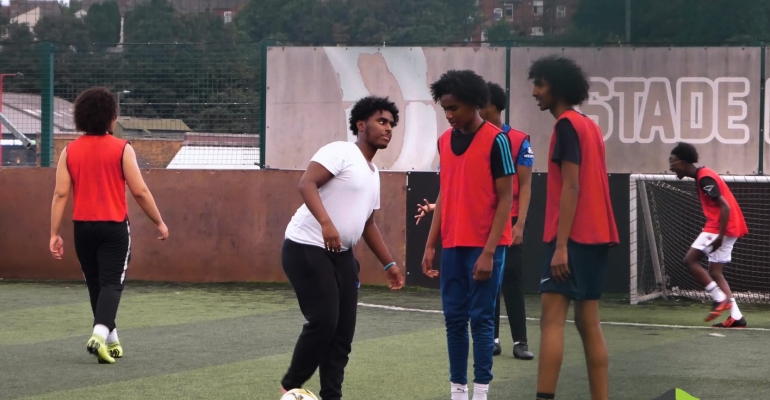
Sporting Elite are a fine example of how sport can act as a powerful deterrent against ethnically diverse young people becoming involved in crime.
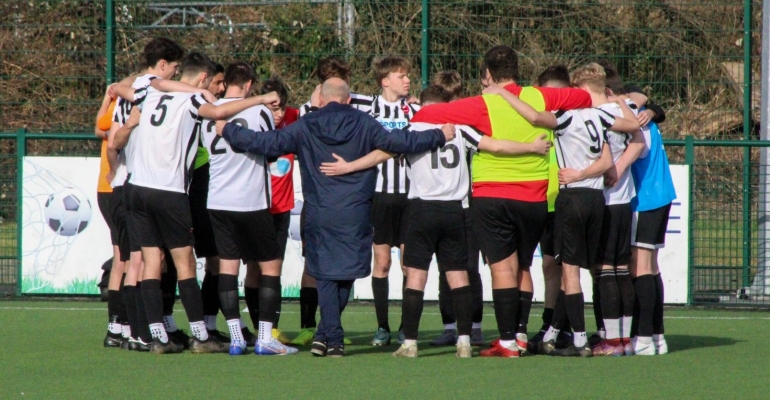
Levelling the Playing Field’s specialist partners Sports Connect use sport in youth custody and post-release to support young people’s successful reintegration into society and prevent reoffending.

Ben Eckett says community sport organisations “must pick up the slack” whilst children’s mental health services suffer from such a chronic lack of capacity.

As part of Levelling the Playing Field’s focus on mental health, we asked our specialist partners, Palace for Life Foundation, about their recent development of wellbeing support for staff.

Leeds Rhinos Foundation have joined the Levelling the Playing Field network after starting a sport and education programme with children and young people in HMPYOI Wetherby.

As part of Levelling the Playing Field’s focus on mental health, we find out how our specialist partners Snow Camp prioritise young people’s positive wellbeing on and off the slopes.
When Snow Camp participants take their first tentative slide down a slope, they know staff are on hand not just to guide them physically, but to support them mentally too.
Snow Camp (Levelling the Playing Field specialist partners) work with young people who are referred to them by over 50 youth projects and service providers in London, the Midlands, the North West and Scotland. They may have low self-esteem, mental health issues, have difficulties at school or at home and/or be on the periphery of the Criminal Justice System. Snow Camp use snow sports as a vehicle to take them on a journey of self-development.
They are taken through a three-stage programme over the course of a year, taking place in indoor UK snow centres, starting with First Tracks, which combines building confidence on the snow with life skills sessions, supported by a Wellbeing Manager. Emphasis is placed on things like goal-setting and re-framing negative thoughts.
The next stage is Graduate, which takes place over six weekends before Christmas. As well as further developing snow sport skills, there is strong focus on self-reflection in mental health workshops led by the organisation’s trained counsellors. The counsellors are also available for one-to-one sessions either in person or separately on the phone or Zoom.

“Whilst at the snowdome we use activities to reflect on their time on the snow that day, but also how that has impacted on their personal journey,” says Snow Camp’s Midlands Programme Manager, Lydia Honey.
“If, for example, one of them was finding things particularly difficult and kept falling over, we would talk about how they got back up again, showed resilience and confidence and how that can transfer into other parts of their life.
“We really try to embed reflection into their daily life – we see it as really important, and a good habit to get into.
“We try to encourage them to reflect; what bits did you love and hate? Where did you make mistakes? For teenagers especially, being able to look at your decisions and emotions helps you do better next time. That is a key part to having good mental health.”
Mental wellbeing group sessions also include ‘check-ins’ and ‘shout-outs’. With check-ins, each young person is asked to rate how they are feeling with a number out of 10, giving a reason if they can. “It’s a really protected time during which we encourage honesty and chat things through,” says Lydia.
‘Shout-outs’ involve each young person nominating someone who cheered them up, encouraged or helped them. It’s a way of spreading positive vibes. Volunteers, apprentices and staff join in too. “It’s important that the adults are open to talking about how they’re feeling too,” Lydia says.
“We use snow sports to enable us to open those conversations that wouldn’t necessarily have a natural way to open otherwise.”
Whilst Programme Managers run things on the snow, Wellbeing Managers deliver sessions on positive mental health such as the difference between anxiety and stress and how participants can recognise the signs within themselves and others. They offer tools for how to cope, including walking, music and journalling. They run group breathing exercises and empower young people to use them outside of Snow Camp.
Excel, which takes place from February-April, is the third stage of the programme, by which time participants are competent enough to take part in a British Association of Snowsport Instructor training programme.
At the end, the young people go on an overseas residential and experience the mountains for the first time. For many, it’s their first ever trip abroad which broadens horizons, pushes boundaries and increases confidence. Afterwards, they can then return as a volunteer, join the youth forum, take their Level 1 qualification or apply to become Snow Camp apprentices.

Once again, mental health underpins this stage of the programme, with increased uptake in the one-to-one sessions run by wellbeing managers as they build towards the residential trip.
Feedback from young people reveals how important mental wellbeing support is throughout their time with Snow Camp:
“Having a wellbeing manager present on Snow Camp was very comforting. She helped me to talk about what I was feeling and to learn more about myself. I’m so grateful. At the start of the year, she made me a wellbeing booklet, which I still use and love. It contains different exercises that help when I’m feeling anxious or low while giving me tips on how to acknowledge when I’m feeling happy. Just knowing that I have someone to talk to is a big relief and I’m not scared of my emotions any more.”
Another participant commented:
“The sessions helped me understand more about wellbeing. The tips the wellbeing manager gave me in our one-to-ones help me a lot. The chats really helped me improve my mindset towards everything in life.”
During the pandemic, when Snow Camp couldn’t undertake its normal activities, it founded another project called Stop.Breathe.Think which is even more focused on mental health. It’s a free one-to-one counselling service for young people in the UK which last year delivered 8,349 counselling sessions – and that included many young people on the Snow Camp programme. It’s a further service its young people can be referred to beyond what they receive at their snow sports sessions. It’s also available for volunteers, apprentices and staff.
“We are hugely invested in mental health here,” confirms Lydia. “Even if it’s half an hour at the end of the day after they have taken off their boots, it has a really positive impact.
“As in other sports, coaches and activity leaders are in a position, unlike parents or teachers, of being a trusted adult who young people can connect with. Even if it’s just asking, ‘How has your week been?’ that conversation will help that young person’s mental health, because you’re showing that you’re there for them.
 “Having trained counsellors at Snow Camp, and our Stop.Breathe.Think service, enables us to take that support several steps further than other similar organisations. It takes our young people on a journey of self-discovery and achievement that can set them up for life.”
“Having trained counsellors at Snow Camp, and our Stop.Breathe.Think service, enables us to take that support several steps further than other similar organisations. It takes our young people on a journey of self-discovery and achievement that can set them up for life.”
Read more about our specialist partners Snow Camp here.
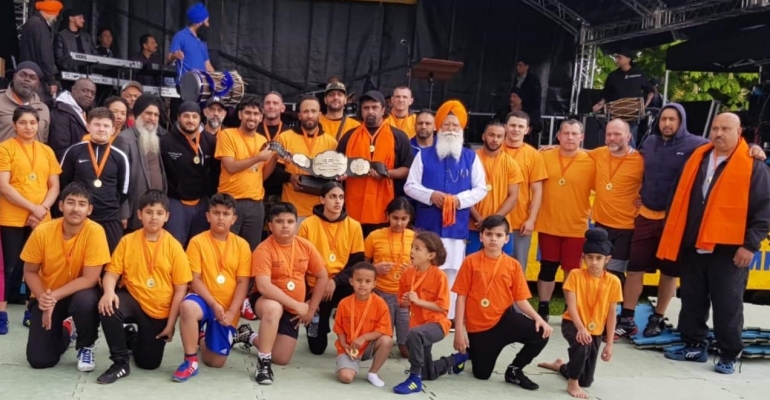
Ranjit Singh from Levelling the Playing Field’s specialist partners Wolverhampton Wrestling Club says demand for mental health support from his participants has never been higher.

Mental health is a golden thread running through every activity for children and young people at our specialist partners Street Soccer London.
Each week, over 150 local girls and boys descend on the Black Prince Hub in Lambeth where the opportunity to play football is only part of the attraction.
After matches, young people can chill out in The Boot Room, where they have TVs showing football, PlayStations and qualified staff on hand who they can chat to and offload any troubles. It’s a safe space where they can feel comfortable and supported by peers and coaches. During the World Cup, they showed all the matches and served traditional food from the nations who were playing that day.
The informal conversations that take place in the Boot Room make young people feel like their voices are being heard and their mental wellbeing supported. They are encouraged to take positive steps towards achieving ambitions within football (coaching, refereeing, volunteering) and beyond (youth work, work experience or employment).

After Christmas, Street Soccer London are taking this approach out to their local community by linking up with nearby Oasis South Bank School.
Having conducted a pilot with Year 10 pupils last year, they are launching it with Year 7 in January. Pupils will walk to the Black Prince Hub from school, take part in sport then go into classroom sessions in which they will be given tools to support themselves and offer peer-to-peer mental health support for a friend in need.
“It’s adapted from a course that I put together with Tender, an arts charity working with young charity to prevent domestic abuse and sexual violence,” says Street Soccer London coordinator Jack Badu.
“We work with young people on the difficult aspects of friendships, identifying healthy and unhealthy relationships, trust, respect, banter, secrets, online relationships and how best to support someone who might be having a tough time.”
In a separate project, Street Soccer London works with pupils at Lilian Bayliss School in nearby Kennington who have attended their football sessions. Jack goes into school once a week to chat to pupils who are struggling with their GCSEs. He develops mentee/mentor relationships (as opposed to teacher/student) which helps support them with things like punctuality, attendance, attainment and relationships at home. He also signposts children to local football, boxing or basketball sessions that can help with their levels of activity and engagement, all contributing, of course, to positive mental health.

Street Soccer London are currently running a research project into young people’s experience of being in care. The object is to find out what additional support care-experienced participants might need so they can cater more effectively for them in future.
More generally, the organisation seeks to support its participants’ mental wellbeing by creating positive relationships with each other.
They deliberately integrate the age groups so older players look after the younger ones. It’s all part of subtly preparing them for future roles as coaches, volunteers or referees (five of Street Soccer London’s current coaching staff are former participants).
“It’s very much a case of ‘look after the younger ones’”, says Jack. “Those 15 or 16-year-olds will be future coaches of younger age groups, so we encourage them to look after the kids they may soon be coaching.
“Because so many of our youth coaches have grown up in the area, they know the individuals well, so they’re always checking in to make sure everybody is OK. They bring them together, sit them down and say, ‘This is how you behave and treat each other.’
 “It’s a community approach to support. It’s all part of our focus on wellbeing, offering a safe space and a sense of belonging.”
“It’s a community approach to support. It’s all part of our focus on wellbeing, offering a safe space and a sense of belonging.”
Find out more about Street Soccer London at streetsoccerlondon.org

As part of our focus on partnerships, we caught up with Mark Seymour, manager of our specialist partners The Gap Wales. The charity runs a project called The Sanctuary which welcomes and supports refugees and asylum seekers who arrive in Newport.
The Sanctuary’s varied work includes Levelling the Playing Field sports sessions which engage newly-arrived young people in football, badminton, table tennis and volleyball. Their drop-in football sessions are run in partnership with another of our Newport partners, Positive Futures.
The sport sessions have a simple goal: to get participants sweaty and smiling. The youngsters who take part are trying to find their feet in a new country – many don’t speak English, have little or no money, feel disconnected, have poor mental health and are susceptible to being exploited. A weekly sport session can give them a sense of belonging, community and safety.
The sports sessions run with Positive Futures are one example of partnership work across the city of Newport between like-minded community organisations, which also includes fellow Levelling the Playing Field partners Community Youth Project and NYCA as well as police, criminal justice and statutory services, to ensure every young person is offered the support they need.
“Across Newport there is a lot of collaborative work,” explains Mark. “We have ongoing relationships with other organisations which mean we have regular conversations about how we can help individuals in our communities.

One of The Gap Wales's football sessions for refugees and asylum seekers in Newport
“Newport is a city of 150,000 people so there is a sense of all knowing each other but also very much a spirit of collaboration, not competition. The partnerships work because they’re informal and relational.
“There are other great projects dotted across the city who I admire and respect hugely; our paths cross and we may share individuals who use both of our services. It’s based on relationships, mutual respect and focusing on the greater good.”
Newport has in recent years adopted a more person-centred approach, with organisations linking up to support young people who are at risk of involvement (or already involved) with the justice system.
He says: “Traditionally, when a young person was in trouble with the police, a third-sector or community organisation supporting that young person wouldn’t be involved in meetings or be seen as part of the support or the solution. But the pandemic has helped a lot of the larger statutory organisations see the influence that local, relational community organisations have.
“With any young person, we can pick up the phone to one of our partners in the community and have a chat about how we can collaborate to support them.
“It’s not based around service level agreements; it’s not formal. It’s about being relational in our community work rather than process-driven. We’ve not signed a contract with each other, it’s purely relationship-driven.”
Mark’s comments tie in with the Alliance of Sport’s new report on effective practice in partnership working in sport and criminal justice.
The report proposes that “communicative partnerships, which emphasise processes over outcomes through co-evolution and co-design, may present a more effective approach to partnership working,” especially those that “focus on social action and transformative change for beneficiaries,”
The ground-breaking report, produced by Dr Haydn Morgan and Dr Colin Baker, included case studies with organisations and key figures in Newport, including Mark, Positive Futures, Gwent Police, Martine Smith from Maindee Primary School and Matt Elliott from Newport Youth Justice Service.

Mark (pictured above) cites an example in which Newport’s communicative network led directly to ‘transformative change’ for a beneficiary. Community Youth Project, another organisation in the city, had a young asylum seeker attending their sessions. They contacted Mark who was able to assist in the young person getting an interview to support his asylum application, as well as joining in with their sports sessions with other asylum seekers.
“Partnerships should form out of a pre-existing relationship between the partners,” states Mark. “Too many partnerships begin with a project in which partners compete to be part of it. That runs the risk of involving the wrong people. It becomes transactional, so if one partner isn’t getting what they want from it, it soon falls apart. The focus isn’t on the greater good because there’s no goodwill built up beforehand.”
Mark recommends a book called New Power by Henry Timms and Jeremy Heimans which explores this shift away from cumbersome ‘big’ initiatives towards more agile, local, community-based social action.
He also gives an example from his own experience of how ‘big’ partnerships don’t always have the desired effect on participants.
A funded programme to provide football sessions for newly-arrived young people required The Sanctuary to recorded each participant’s name, date of birth, address, ethnic background and other data. With participants of complex backgrounds, the registration process for each session ended up taking longer than the sporting activity itself.
“It was the tail wagging the dog,” reflects Mark. “It was a barrier that wasn’t necessary. Given their history, the participants were understandably nervous of giving out personal details. With my knowledge of them, I could have done a head count and given an approximation of their ages, country of origin etc.
“It was a very white, middle-class approach to running that project, and it was transactional. It unwittingly excluded people from taking part in sport and diluted its positive impact. However, the funders were very positive in response to this feedback and have learned from the experience.”
Read Alliance of Sport’s report, A Model for Partnership Working in Sport and Criminal Justice, here.

As part of our partnerships theme in November we speak to Mufasser, a young participant from our specialist partners Saalik Youth Project in Sheffield. He has grown up under the organisation’s protective wing in the ethnically diverse community of Burngreave. Recently, he’s benefited massively from being part of a youth leadership partnership project in the city.
Youngster Mufasser Aslam is on the road to success having grown up in the protective ‘second family’ of Saalik Youth Project – Levelling the Playing Field’s specialist partners in Sheffield.
Situated in the community of Burngreave, Saalik Youth Project uses sport and physical activity as a hook to engage children, many of whom are from the local Pakistani community.
Mufasser, now aged 20, has been part of Saalik Youth Project (formerly known as Ellesmere Youth Project) since he was six. His two brothers also attended and were guided by the organisation’s founder and local role model Imran Ali.
“It’s been very important for me and my brothers,” said Mufasser. “We do football, cricket, badminton, dodgeball... all sorts. Sport is an important way to become part of the community. But it’s not only about sport, it’s about discipline and respect and growing as a character.
“As you get older you develop qualities when you’re under Imran’s guidance. It almost happens naturally. When I was there as a kid, we would watch the older ones and how they acted and we would grow to act in the same way. It’s like a cycle.
“We hold each other accountable for things. The staff keep us in check, but if one of us does something wrong or gets into a fight, we will all sit down and discuss it. There’s a lot of crime right now, and if someone doesn’t hold you accountable, what’s to stop you getting a knife out and getting involved?”

Mufasser is one of 17 boys from Saalik to join the NextGen project run by national doorstep sport charity StreetGames in partnership with Sheffield Youth Trust, Sheffield City Council and the local School Sports Partnership. Fifteen children from Levelling the Playing Field’s specialist partners at Reach Up Youth, based just a short distance away from Saalik, have also taken part.
NextGen is a youth leadership project to encourage 16-21-year-olds to volunteer and take social action through a bespoke programme including training, on-the-job experience, mentoring and support.
The project’s aims are to increase confidence and raise aspirations in young people from low-income families, support and mentor young people who may be uncertain of their future direction, allow them to meet peers from across the city, give them ownership of the project and empower them to make decisions, track their volunteering journey, create role models, give them skills to look after their own wellbeing and celebrate their successes.
The project included a variety of courses to upskill the participants and build leadership skills, including first aid, safeguarding and multisports and Level 2 coaching qualifications.
For Mufasser, it has led directly to employment with the Sheffield City Trust as a youth engagement officer, setting up local events and community sport activities for children and young people. “It’s a big step for me and it’s come directly from what I’ve learned through Saalik and the leadership course,” he said.
“It was an excellent course. We did new things every week. A big aspect of it was we all knew each other so we could speak freely, relax and feel at home. There was no judging, no-one was an outcast. We were all friendly and there was no bullying.”
The immense value of Saalik Youth Project and the strong influence of Imran is not lost on Mufasser. He feels his skills and confidence have been built to such a degree that he now acts as a role model and example to the younger ones.
“No-one does anything too wrong, but if I see something that’s a little bit off, I’m confident enough to correct it or take them aside and have a word,” he says. “For example, I clamp down on swearing. There’s no rudeness from them in return, they understand and don’t complain.
“My brothers went through the same programmes as I did. Seeing them at the school holiday camps, behaving the way they did, with respect, I just followed them. I don’t really swear much or go out late at night.
“That’s because we were taught right and wrong by Imran. He is a role model and we are lucky to have him.
“Everyone knows each other here in some shape or form. The Pakistani community is quite tight. It’s rare that we don’t know each other’s families so whenever we see each other, we have a friendly chat. That’s important because you feel part of the extended family and the community.”
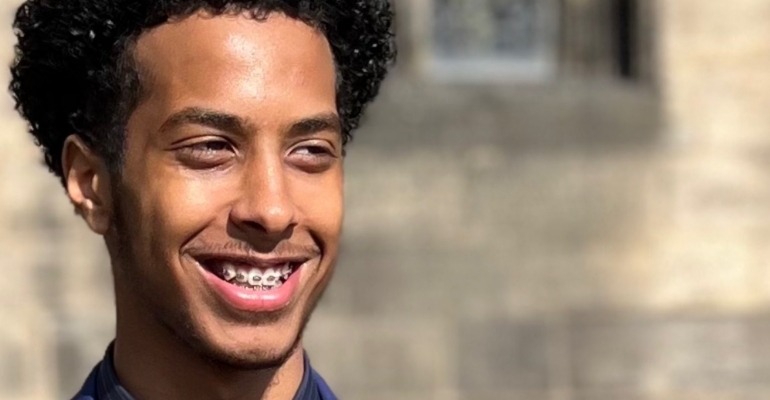
As part of Levelling the Playing Field’s focus on partnerships in November, we showcase a collaboration in Sheffield involving two of our specialist partners that is developing the next generation of confident and qualified leaders.
NextGen, the youth leadership project led by national doorstep sport charity StreetGames, has recruited 17 volunteers from Levelling the Playing Field’s specialist partners Saalik Youth Project and 15 from ReachUp Youth, all based in the ethnically diverse Sheffield community of Burngreave.
The partnership project, which also involves Voluntary Action Sheffield, Sheffield City Council and the local School Sports Partnership, encourages 16-21-year-olds to volunteer and take social action through a bespoke programme including training, experience, mentoring and support.

The cohort of young people on the NextGen project from our specialist partners Reach Up Youth
The project’s aims are to increase confidence and raise aspirations in young people from low-income families, support and mentor young people who may be uncertain of their future direction, allow them to meet peers from across the city, give them ownership of the project and empower them to make decisions, track their volunteering journey, create role models, give them skills to look after their own wellbeing and celebrate their successes.
One youngster who has benefited from the partnership project is 17-year-old Sami Baghdadi. He has volunteered at Reach Up Youth in Burngreave for the last five years, coaching, helping to organise sports events, supporting others’ mental wellbeing and being a leader and role model for younger children in the area.
In October, Sami won the National StreetGames NextGen ‘Young Leader of the Year’ award for his dedication to volunteering with ReachUp, having previously won the NextGen Regional award for Yorkshire and Humber.
“It began five years ago when there was a lot of bad stuff going in around the area,” said Sami. “Every Saturday we hooked up to play sports, socialise and talk about our week. There was a really good network of peers.
“It’s just grown and grown and we’re now getting involved in so many great projects and have got national attention.
“Throughout the whole five years I volunteered every week and at every big event. It became part of my life and I’ve made lifelong friends.”

Sami with his mum, Safiya Saeed, founder of our specialist partners Reach Up Youth
Sami’s regional and national StreetGames NextGen awards follow on from his nomination in the 2021 National Diversity Awards.
“Winning the NextGen awards makes me proud of what I do and it’s an indication that I’m doing the right things. A lot of people my age tend to fall into a different route and way of thinking.
“It motivates me to do more. I’ve discovered a passion for leading and organising. It’s really satisfying when something you work so hard at comes off really well and gets the reaction and attention you wanted from young people.
“I organised a basketball tournament in collaboration with Sheffield Sharks and all the money raised went towards new equipment for the kids. It’s about the satisfaction of the event going well and bringing a positive impact to the community or to people in crisis.”
To read more about our specialist partners Reach Up Youth, click here.
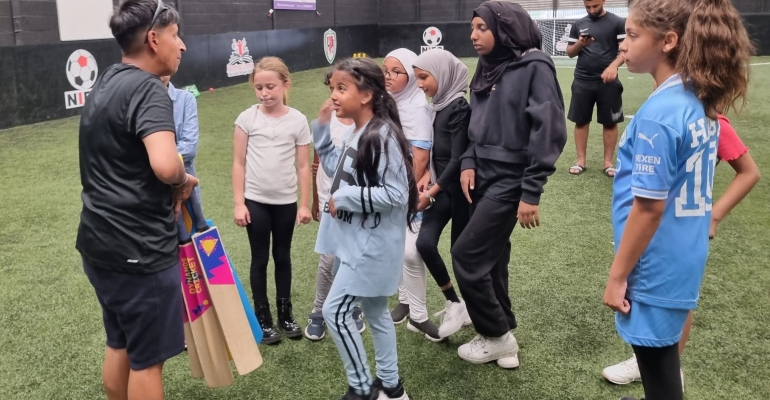
As part of Levelling the Playing Field’s women and girls month in October, we spoke to Reggie Al-Haddi, chairman of our specialist partners Newport Yemeni Community Association who have innovated to engage girls in the ethnically diverse community of Pillgwenlly (known locally as ‘Pill’).
There are many issues in the hugely diverse community of Pillgwenlly in Newport, but Levelling the Playing Field’s specialist partners Newport Yemeni Community Association (NYCA) prefer to “focus on the solutions, not the problems.”
NYCA put on sporting activities for children from a hugely diverse range of ethnicities and backgrounds in the community including girls-only football and cricket sessions.
The organisation runs mixed sports and activity sessions, but the girls-only sessions cater for females of a certain age, many of whose families don’t want them to mix with boys for cultural reasons.
In response to this, NYCA partnered with Cricket Wales, who have provided a local female coach to lead sessions on Wednesday evenings in winter and summer. The girls’ mums are heavily involved and they all went to Test cricket venue Sophia Gardens in Cardiff in the summer to watch a NatWest Blast Twenty20 match between Glamorgan and Essex.

NYCA chairman Reggie Al-Haddi explained: “People have their cultural beliefs which is totally fine, but they do make it a bit more difficult for girls to get equal opportunities.
“We focused on a solution for these girls to enable them to have a physical and mental release, connect with friends and have fun. It gives them a bit of freedom; their own space and time which they wouldn’t have at home.
“I’ve grown up in this area and unfortunately, I’ve seen good friends die or go to prison – and that’s the biggest reason why we do what we do, to stop that cycle. We want to see the next generation given more opportunities.
“Pill has a very influential drugs market and it’s so easy for our young people to get sucked into that world. We just want to try and do something about it by giving them alternative positive opportunities from an early age where they have access to sport, friends, mentoring and a wider world view.”
Those aims mean NYCA perfectly align with Levelling the Playing Field's common goals:
NYCA secured funding from the Gwent PCC, who spotted the organisation’s potential for positively engaging children and young people who may otherwise be at risk of engaging in crime or anti-social behaviour.

At their sessions, children are given clear boundaries and discipline with swearing and fighting not tolerated. They work in partnership with fellow LtPF delivery partners Positive Futures, referring children to each other’s sessions and taking part in wider community events like the Newport Inclusion Cohesion Shield football tournament.
“The PCC are so willing to fund grassroots organisations like ours because it gives back to the community and, down the road, it will reduce anti-social behaviour and divert children down a more positive path. It makes their jobs a little bit easier – together we truly are stronger,” says Reggie.
“The children just want to know that somebody cares. That’s where we come in. We give them that place where they can build that trust and they come to us when they need stuff.”
In the summer, there was a great example of NCYA being led by young people’s needs. At a football session, some participants said they needed somewhere they could revise for their GCSEs. “I said to them, ‘We can do better than that!’” recalls Reggie. “We got them a tutor, then a few weeks later they said to me, ‘The question in the exam was the same question we did in our tutor revision session!’ They were over the moon.”
 The girls’ cricket sessions lasted all summer and after a two-week break they are set to resume shortly indoors every Wednesday until the end of April. “It has just grown and grown, with mums and girls absolutely loving it,” says Reggie.
The girls’ cricket sessions lasted all summer and after a two-week break they are set to resume shortly indoors every Wednesday until the end of April. “It has just grown and grown, with mums and girls absolutely loving it,” says Reggie.
For more info on our specialist partners NYCA follow them on Instagram or Twitter.

As part of Levelling the Playing Field’s Women and Girls month in October, we visit the Sisterhood project which is run by our specialist partners Reach Up Youth in South Yorkshire.
Sisterhood engages 12-21-year-old females in the ethnically diverse area of Burngreave in Sheffield using sport, art, volunteering, leadership opportunities and much more.
Sisterhood and its equivalent project for young males, Big Brother Burngreave, are run completely by their participants. Children and young people have ownership over each project’s week-to-week content, with young leaders arranging activities based on local need, addressing issues like mental health, first aid, knife crime, identity, racism, self-esteem and the dangers of gang culture.
For girls in the Sisterhood programme, they discuss issues such as body image, forced marriage, hair and beauty, teamwork and self-empowerment.
In September, the Sisterhood group was visited by the Sheffield branch of the charity Mind who donated canvasses and paint for the girls to do their own art projects around the subject of mental health.
In their designated Levelling the Playing Field sports session the following Saturday, the girls started with two hours of basketball, then used the leftover art materials to make more creations around the subject of identity.

Conversation in the session moved on to starting a campaign to support girls who are victims of violence. After the basketball session, the girls compiled a questionnaire for members of the public to ask their views and experiences and signpost people to further support.
With help from Bonnie, the Community Champion of a local branch of Tesco, the girls will now visit the store on a Saturday to ask shoppers about violence against girls, share views and resources.
“They want to open up uncomfortable conversations and discuss violence against girls across the genders and generations,” explained Safiya Saeed, founder of Reach Up Youth, hugely influential local resident and mother of five.
“I like to put the kids on the front line like this. The girls get such a buzz by the end of the day. They feel professional, they feel like they’ve been seen and we’ve had a few parents break down and cry because they are so proud.”
Safiya added: “It’s through this type of activity that I can identify the future young leaders of Sisterhood. Also, it’s a chance for those who are shy and anxious to come out of their shells.
“I can’t wait to see the impact they have in the community and the circles in which they operate in. The area will always benefit from young people being proactive like this.”
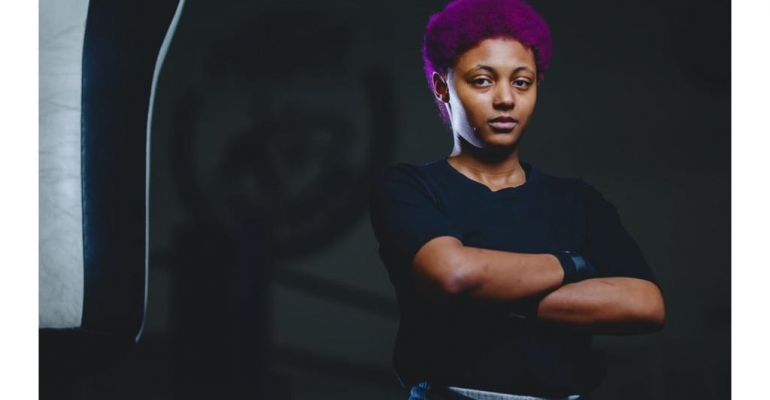
As part of our mentoring month in September, we spoke to Reahana from our specialist partners Fight 4 Change about her role as a mentor to children at the charity’s base in London.

Levelling the Playing Field is delighted to welcome Snow Camp as a new specialist partner on the project.
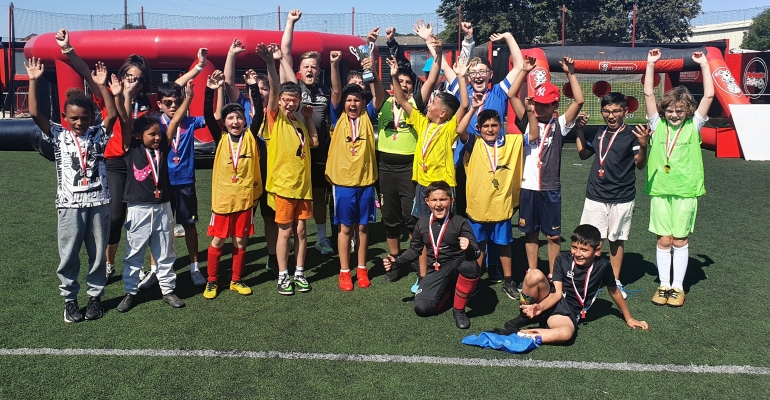
Ant Bayou from our specialist partners Rotherham United Community Sports Trust explains how Levelling the Playing Field's mentoring qualification has improved the breadth and quality of provision they offer young people on their programmes.

As part of our mentoring theme in September, Levelling the Playing Field spoke to Jeni Bennett, Mentor Project Manager at our specialist partners Sport 4 Life in Birmingham.

Levelling the Playing Field’s network of partners in Gwent came together to stage the Newport Inclusion Cohesion Shield to support young people from ethnically diverse communities.

Pat Benson Boxing Club is the “perfect environment” to engage ethnically diverse young people on the fringes of criminality due to its mixture of mystique, discipline, diversity, nurture and support.
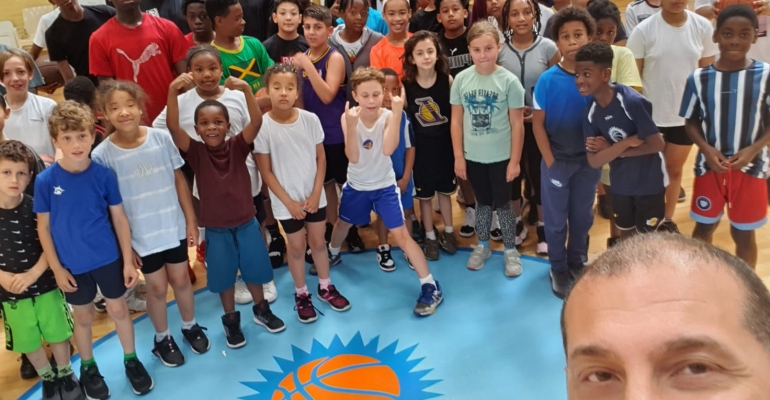
Our specialist partner London Thunder Basketball Club offers a safe ‘playground’ for young people in the ethnically diverse area of Lewisham, south-east London.

Levelling the Playing Field has sparked a unique unification of services in Newport which offers life-changing support for children through sport and physical activity.

The Coventry Youth Partnership (CYP) is a collective of community and statutory organisations who work together to achieve the best possible outcomes for young people in the city.

When assessing success, it’s entirely understandable that Levelling the Playing Field specialist partners will focus on their impact on participants. But what about staff?

As part of our 'Monitoring and Evaluation' month, we speak to third-sector M&E expert Matt Stevenson-Dodd for some wisdom on measuring and recording impact.

As part of our ‘monitoring and evaluation’ theme in May, we speak to Ben Eckett who is introducing a fascinating new system to measure the impact of his programmes at our specialist partners Gloves Not Gunz and Urban Yogis.
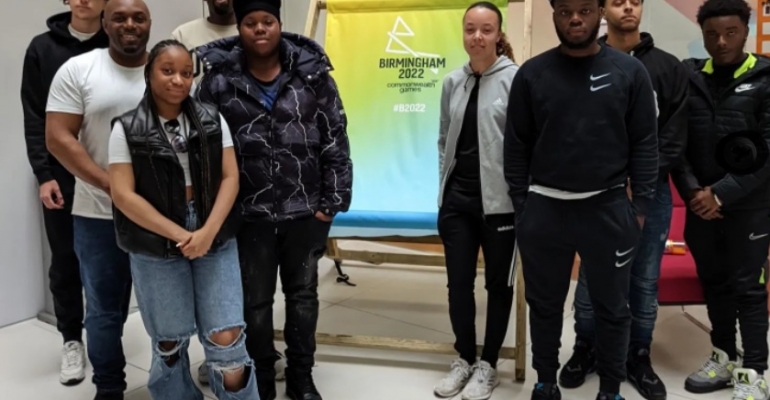
Ten participants from our specialist partners Sports Key in Birmingham have been selected for the Commonwealth Games Gen22 programme to gain confidence and boost their employability.

Our strategic partners Yorkshire Sport Foundation have set up the Active Burngreave Training Hub to share local expertise, upskill workforces and empower organisations delivering sport and physical activity in the community.
Four Sheffield-based Levelling the Playing Field specialist partners – Reach Up Youth, Zest, Unity Gym and Saalik Young People (formerly Ellesmere Youth Project) – are involved in the Hub. It has been set up to identify gaps in local provision and use its collective pool of knowledge and resources to try and fill them (or access appropriate training to upskill people in order to fill the gaps themselves).
Mentoring plays a big part in the support offered by the Hub. Local mentors will support leaders, staff or volunteers through qualifications or training, developing their confidence and competence around any element of delivering sport and physical activity and improving health and wellbeing.
For example, one local organisation has accessed the Hub for mentoring support in applying to become a Community Interest Company (CIC). Another recent meeting at the Hub saw two young leaders from Reach Up Youth ask for help in delivering sport to disabled children. Levelling the Playing Field have stepped in to fund a Disability UK course for the pair.
“This is ultimately about tuning into what local people and organisations need, understanding where their skills and strengths lie, and matching them with each other to work together and offer mutual support,” said Kathryn Mudge, Development Manager (Communities) at Yorkshire Sport Foundation.
Kathryn added: “As a city, we’ve spent an awful lot of money in the past bringing in external expertise when we could have done it ourselves, with a bit of support and structure, by accessing great local people who have the skills already.
“The Hub is a product of us recognising that ‘going on a course’ doesn’t always work. To plug gaps in provision, it often needs longer-term support and mentoring, particularly in areas where community leaders, volunteers and staff have English as a second language or are fairly new to the world of policy, bureaucracy and navigating the system.
“The Hub will also help build people’s confidence to voice their opinion, or get them access to the ‘right table’ in order to exert an influence. They can then start challenging decisions and ensure projects are locally led.
“In the voluntary sector, people have busy schedules and can’t benefit from the ‘watercooler conversations’ and conferences of the professional world. They miss those crucial networking opportunities. We’re trying to offer that across the city of Sheffield and eventually all of the county.”
Levelling the Playing Field specialist partners Saalik Young People is also supporting the Hub. Its director and local resident Imran Ali is mentoring groups and individuals. Partners such as StreetGames or Sheffield & Hallamshire FA have offered free or discounted courses to upskill leaders and coaches.
Yorkshire Sport Foundation’s own mentors are also on hand to support people in whatever they want to achieve. For example, Yorkshire Sport Foundation's Sheffield Community Development Officer Faisal Eid is helping two young leaders from Reach Up Youth, Tyrone and Umar (pictured above), with the administrative side of leadership: writing reports and emails, policy, developing ideas and speaking at meetings.
Supporting Tyrone and Umar is part of a push to increase the number of skilled community leaders in their early 20s who have that crucial element of relatability with participants. “We want to bring in new blood,” says Kathryn. “The majority of our current community leaders are a little bit older so we want to identify the leaders of the future.”
Summarising the project’s impact, Kathryn says: “The Hub is going to build a network of highly skilled, highly qualified community leaders delivering excellent provision within neighbourhoods – initially in Burngreave, but eventually across the whole of Sheffield.”
Main pic (l-r): Sheffield Community Development Officer Faisal with Umar and Tyrone from Reach Up Youth

Levelling the Playing Field has completed a “hugely positive” initial phase of delivery with children inside HMP Werrington via our specialist partners Sharks Community Trust.

Manpreet Kaur Saini from our specialist partners Wolverhampton Wrestling Club has achieved a Bollywood-inspired dream after being selected as a baton bearer at this summer’s Commonwealth Games.
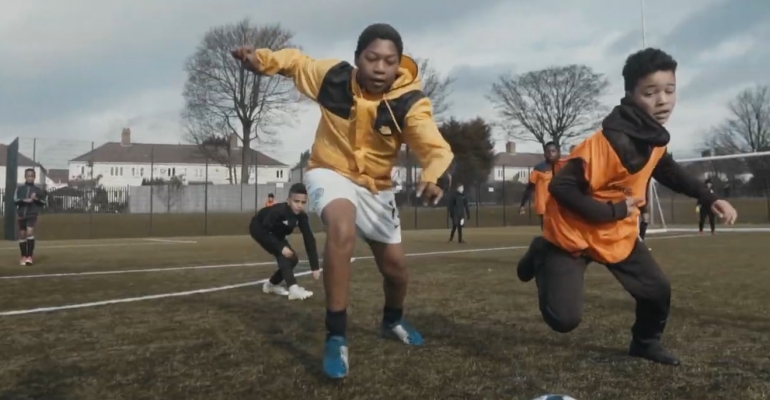
We sit down with Arnaud and Raya, who deliver Levelling the Playing Field sessions at our specialist partners Palace for Life Foundation, to discuss their impact on ethnically diverse children and their community.

As part of our support for the Sport for Development Coalition’s #OpenGoal campaign – which coincides with International Day of Sport for Development and Peace - we profile the journey of Kameron from our specialist partners InPower Academy.
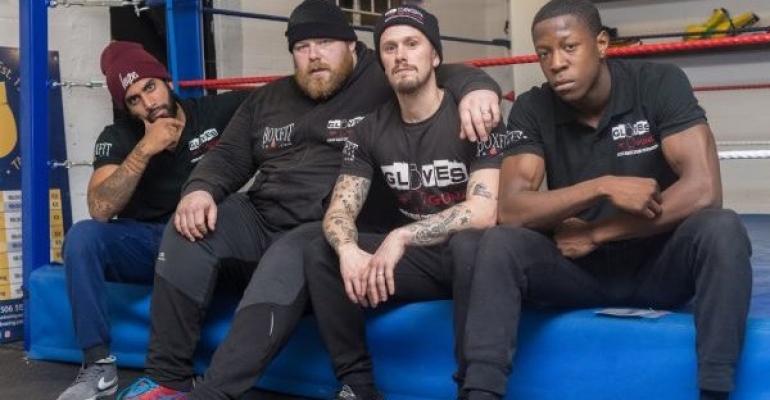
The Alliance of Sport’s successful application for Sport England Tackling Inequalities Funding (TIF) has given more children in Croydon access to physical activity, support, safety and routine - thanks to LtPF specialist partners Gloves Not Gunz.
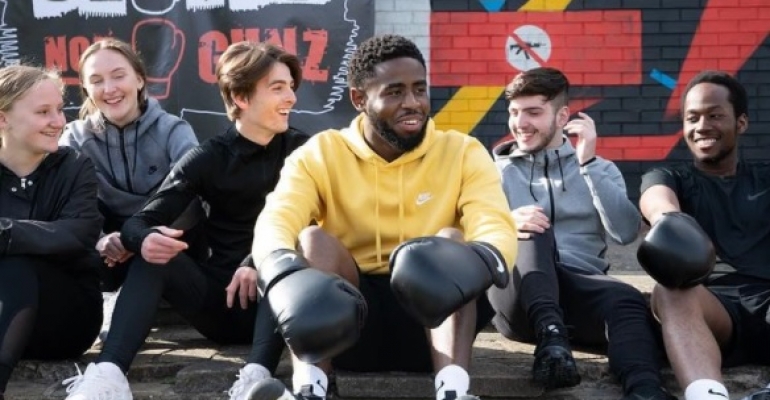
Gloves Not Gunz use boxing, jiu-jitsu, fitness and yoga to engage and divert children from crime, anti-social behaviour, exclusion from education and the care system. Bringing parents on board with their processes has a huge influence on the positive impact they make on young people.

Levelling the Playing Field is delighted to welcome Pat Benson Boxing Academy as a new specialist partner in the West Midlands.
Named after its founder in the early 1960s, Pat Benson Boxing Academy runs a variety of sport and education programmes to build young people’s physical and mental health, confidence, resilience and self-esteem, as well as foster community cohesion.
Now led by Pat’s grandson Paddy Benson, a former international boxer, the academy runs projects with schools, alternative provisions, community groups and individuals to support participants on a journey to achieve their goals inside and outside the ring.

When a young person is referred to the Academy’s Youth Development programme – typically by police, offending agencies, social services, schools, Birmingham Children’s Trust – the first priority is setting boundaries and goals.
“Straight away we home in on their personal development – What time do you call this? Have you come dressed to train? Put your phone away!” explains Programme Manager Leah Harris.
“It’s a ‘tough love’ approach that appeals to young people. It’s a male-dominated environment and the coaches aren’t going to sit you down, put their arm around your shoulder and ask how your day has been.

“They know why you’re here and they have a technique, steeped in the boxing culture, of teasing certain things out. It’s very much, ‘Great to have you, you’re now part of the family, now let’s get on with the session.’”
The Academy never turns anyone away (even taking steps to accommodate local postcode rivalries between participants). They work with participants and their families towards specific goals such as qualifications, apprenticeships, volunteering, employment or housing solutions for those affected by homelessness.
Funded by BBC Children in Need, the Academy’s Youth Development Programme has worked with over 1500 young people in the last eight years.

Based in the ethnically diverse but deprived area of Digbeth, Birmingham, Pat Benson Boxing Academy is an ideal fit as a special partner in achieving Levelling the Playing Field’s common goals:
Academy staff are about to begin a new programme with 20 young people in custody who are within six months of the end of their sentences. Combining their boxing programme with housing support, they hope to be able to positively impact on their re-introduction to society and rehabilitation. “We want them to go on a positive journey with us,” says Leah.
The Academy’s staff team includes several coaches who have come through the youth programmes themselves – inspiring role models for those who want to follow the same path.
“What we have learned over the years is that having high-quality partners is absolutely crucial,” says Leah. “We are looking forward to working with Levelling the Playing Field and contributing to a national movement for positive change.”
FOR MORE INFORMATION ABOUT PAT BENSON BOXING ACADEMY, VISIT THEIR WEBSITE, OR FOLLOW THEM ON INSTAGRAM, FACEBOOK AND TWITTER.
_medium.jpg)
Martine Smith’s job title at Maindee Primary School in Newport may be ‘Equity Lead’ but her influence on children and families in her local community goes way, way deeper than that.
Martine is a highly respected figure amongst the hugely ethnically diverse population surrounding the school (where 46 different languages are spoken amongst the pupils). Through dogged persistence, empathy and patience (amongst many other attributes), Martine has positively engaged vulnerable families, fostered cohesion and set many at-risk children on a more positive path.
Using her trusted reputation in the community, Maindee Primary has partnered with Levelling the Playing Field’s specialist partners Positive Futures and Community Youth Project, plus Newport Youth Justice and Sport Wales to offer local children tailored provision in sport, music, creative arts, personal development and education opportunities.
Early intervention is crucial. Thanks to Martine, head teacher Jo Cueto and Positive Futures’ own community relationships, local families are more willing to engage in opportunities in school and in the community, delivered with partners and statutory services such as Newport Youth Justice (the recent boxing session at St. Michael’s Boxing Gym with Commonwealth Games gold medallist Sean McGoldrick was a great example).
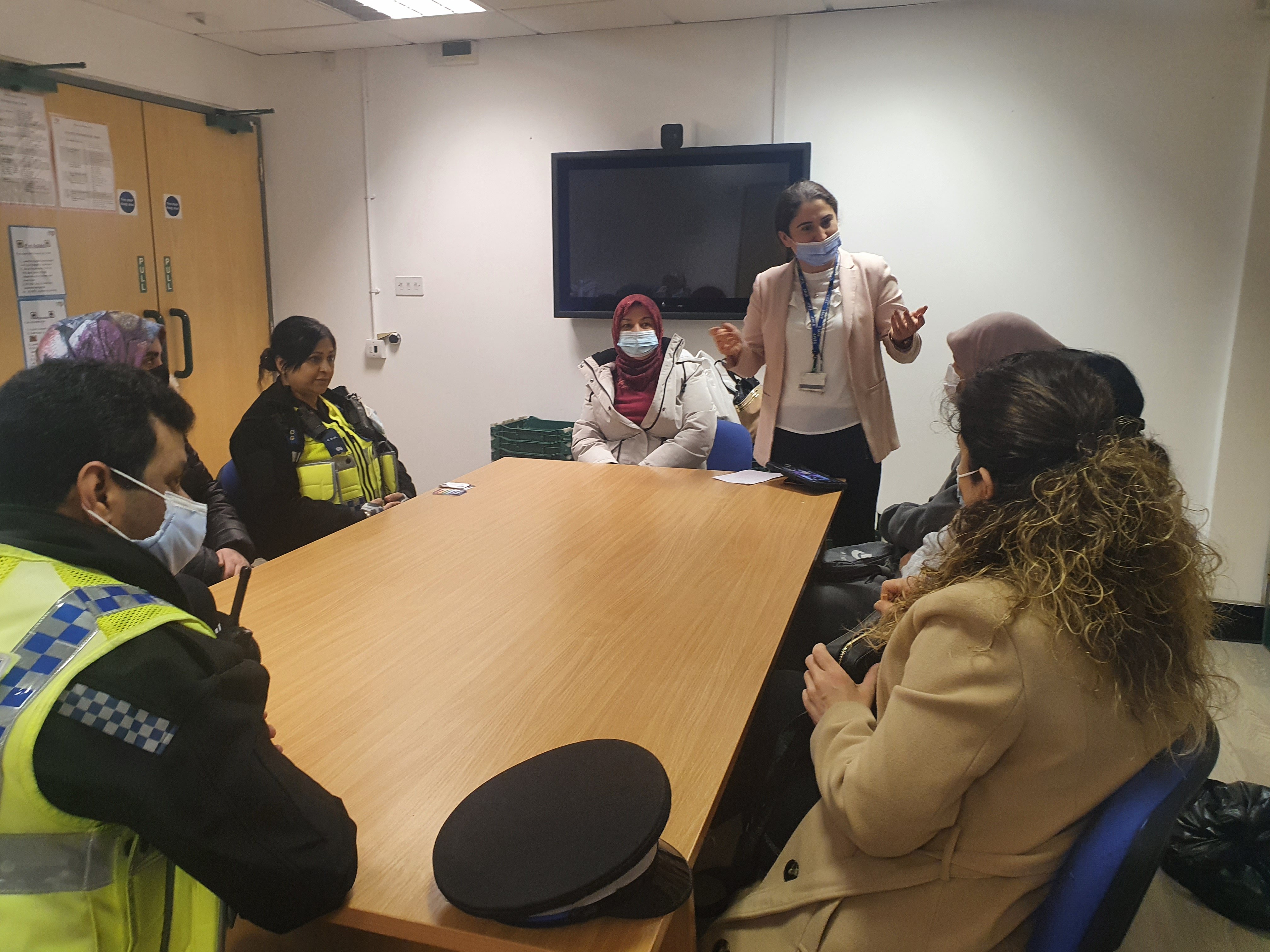
This provision helps build trust and break down barriers, so that when incidents do occur, Martine can be that crucial link between the families and statutory services or the police to ensure everyone works towards the best possible outcome.
“Relationships are the key to everything,” says Martine. “We’ve got an open-door policy at the school. Everybody is invited in for a cup of tea and given the time to talk and be listened to.”
The strengthening of Maindee Primary’s relationships with parents began after serious racially motivated incidents took place in the playground. Martine called them a “huge eye-opener".
As a response to these incidents agencies were asked to support. The Early Intervention Project began with Newport Live, Newport Youth Justice, prevention teams and the school working closely to address concerns around what they were seeing in the community.
The school hosted workshops on drugs awareness, knife crime, anti-social behaviour, healthy eating and more – with parents and their children attending separately but receiving the same information. Partners such as Fearless, South Wales Fire and Rescue Service and Gwent Police have come into the sessions to offer guidance and support.
'A SAFE SPACE'
“Those meetings and workshops soon became a safe space where parents from different faiths and religions all had something to latch on to and a common interest, held in a safe environment with a member of school staff present to mediate,” Martine explains.
In the ensuing three years, this cohesion has blossomed into all sorts of community activity – including a forthcoming after-school boxing programme at the school (supported by Positive Futures and the ‘Active Education Beyond the School Day’ funding from Sport Wales) which will be led by a group of keen volunteer fathers from the community.
“The reason we can achieve progress with families all stems from relationships we’ve built up with them,” says Martine. “I wouldn’t advise anyone to cold-call at someone’s door without building that trust up first.
“I’ve worked here for 12 years so I’m well known. If a child has voiced concerns to me, I know I can knock on a family’s door and I’m welcomed in as part of the community. I’ve done the groundwork. It’s just a really simple conversation in non-threatening, non-judgemental language, in which I say to them, ‘How can I help?’
“It’s very, very evident that the work we’re doing in the evenings is working. Lots of my older boys are right on the edge of anti-social behaviour, exploitation and other issues. They need someone to reach out to and we’re providing that support.”

Matt Elliott from Newport Youth Justice has recently joined this circle of trust and delivers several sport-based programmes locally. Previously in his role, his relationship with a young person would start with a referral following a court order, but now he works preventatively with vulnerable families, building relationships and giving children a safe place to let off steam.
It’s for these reasons that this partnership’s work is aligned to Levelling the Playing Field and our common goals:
Lucy Donovan, Senior Development Officer for Positive Futures, works closely with Martine. She comments: “For all of us in this partnership it’s about getting to know people and having a chat on their home turf. Then when issues occur, you can go and have a conversation, as opposed to them feeling like they may be judged by a professional, and starting the relationship in a 'deficit' position with a power imbalance. We want our communities to own and lead these programmes to ensure they can be sustained for years to come.”
Martine summarises: “The relationships come first – and that can take time, sometimes years – which is why short-term funding is inadequate for this type of work.
“On a personality level, it’s about being caring, consistent and determined to build up children’s self-belief. Many young people and adults just don’t believe they can achieve anything. They must receive a consistent message – you belong, we want you to be the best you can be and we care about you.”

Everybody knows Safiya Saeed in the Sheffield community of Burngreave. She is deeply embedded and highly respected in the area – and that is key to her impact on children at the organisation she founded, Reach Up Youth.
Reach Up Youth run sport-based community youth projects called Big Brother Burngreave (for up to 24 boys) and Sisterhood (for up to 15 girls), based at the Verdon Recreation Centre. Both are specialist partners of Levelling the Playing Field. Great emphasis is placed on leadership, with boys earning coveted blue, red, grey and black t-shirts which represent their ascending status as mentors and role models to younger participants.
Burngreave is an ethnically diverse area, with over 25 languages spoken within its small radius. It can also be tough. Safiya's tight connections with hundreds of families across the area enable her to exert a strong, positive influence on the children who come through Reach Up Youth’s doors.
“In this job, I encounter issues every day,” Safiya says. “My number one priority is making sure I have some sort of relationship with their parents. That way, I find out if they can be part of the solution – or sometimes if they are part of the problem! Either way, you’ve got to know what’s going on.
“You’ve got to understand that no matter what that child says to you, it is only their perspective and there will always be another side to the coin. It’s about calming that young person down, saying, ‘Let’s find out what’s going on’ and making sure they know you have their back – but then finding out the adult perspective too.

“Have a three-way conversation so everything is transparent. Don’t react the minute you hear a story. You need to use your intuition. You must have a good relationship with the child and the parent, in order to be able to offer any help. It doesn’t work if you only have one’s trust but not the other’s.”
Safiya recently became a local councillor for Burngreave ward and sees her job as “to fight for young people and families to access education, equality and a healthy lifestyle.”
Her community leader role is greatly helped by speaking several languages, which helps her relate to local families. “When I ask, ‘Have there been any recent changes in the house?’ that could potentially embarrass those proud parents, so saying it in Pakistani or Somali is very helpful – as well as respecting confidentiality,” explains Safiya.
Whichever language she’s speaking, it’s fair to say that Safiya loves to chat! Her beaming smile and engaging personality ensures she is warmly welcomed into local homes and any tension over concerns and issues is diffused.
‘BE A FRIENDLY CROCODILE!’

“My advice is not to step on anyone’s toes but understand where that child is coming from. Make sure they come to you; don’t go round chasing anyone. When they are ready, they will come to you. I need to be a friendly crocodile under the water so I can catch those kids who fall in the water!
“You have to be very transparent and say what you can and can’t do. If you feel like your child is disrespecting their parents, you’ve got to put a lot of boundaries around. It is very important the you are respected within the community otherwise those boundaries would be meaningless – they wouldn’t stay within them.
“It’s very important that young people and families know that you are ready to commit your time. I will give 110% for them. If they are in a safe house in Nottingham, I’ll go and pick them up. The parents are very often limited in terms of knowledge and resources, so you have to fill that void.
“You’ve got to be there, come what may. You can’t say, ‘Don’t call me after 6pm’. That person might be in serious trouble and you’re their lifeline at 4 o’clock in the morning.”
Recently, Safiya was dealing with a participant who was hanging out with the wrong crowd and using drugs. She invited him to some climbing sessions that Reach Up Youth are running with Levelling the Playing Field delivery partner Rachel Climb Unity. There, Safiya engaged him gently in conversation.
“We danced around the issue. I reminded him what a beautiful person he is and told him how he’s so funny and always making me laugh. I advised him to take control of his life a bit more. I said I want him to become one of our next leaders and would invest time in him.
“I approached his father. Together we came up with a plan to help his son find his own identity, discover a focus and give him emotional support. It was a good example of how those close relationships with a young person and their family can bring about good solutions - finding volunteering opportunities, qualifications, jobs, friendship groups and connecting to local networks.”
‘LTPF LIKE A SECOND FAMILY’

All this work has recently been underpinned by funding from Sport England’s Tackling Inequalities Fund, which Reach Up Youth received via an application made on behalf of many Levelling the Playing Field specialist partners by the Alliance of Sport.
“The TIF money has helped us develop more opportunities for young people, breeding aspiration and confidence,” says Safiya. “It has paid for training in things like safeguarding and mental health and resources which will be a real boost to our young people. Our sustainability is so important because it maintains consistency which is vital to building trust.

“I feel like I have gained a family from being part of Levelling the Playing Field. It feels empowering and protective. We could never have hoped to reach the likes of Sport England otherwise. It’s a massive bridge between grassroots organisations and big funders and governing bodies out there.”
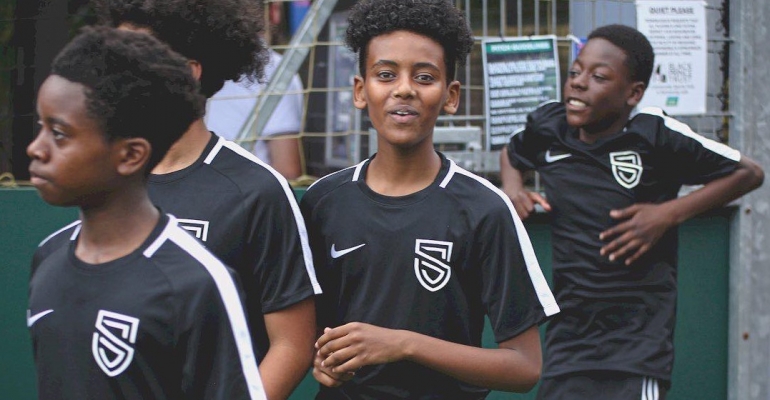
Street Soccer London have been able to develop deeper relationships with their participants by being part of the Levelling the Playing Field network and receiving Sport England’s Tackling Inequalities Funding.
That’s the opinion of Street Soccer London coordinator Jack Badu, who together with manager Craig McManus and other staff has seen their programmes at the Black Prince Trust in Lambeth grow in numbers and increase their positive impact on participants.
Street Soccer London’s designated Levelling the Playing Field sessions take place on Wednesday evenings with U12s, U16s and U19s groups on separate pitches. A typical session will be attended by 60-70 players in all.

After coaching and matches, all youngsters have access to ‘The Boot Room’, where they can chill out, watch Champions League games, play on the PlayStation and have informal conversations with staff. In those conversations, their voices are heard and they are supported and encouraged to take positive steps towards achieving ambitions within football and beyond.
Those ambitions could involve coaching or refereeing, volunteering, youth work, work experience or employment. Street Soccer London has built a web of partners to whom they can signpost young people to achieve these next steps.
Sport England’s Tackling Inequalities Fund (which was secured for many Levelling the Playing Field specialist partners by the Alliance of Sport) has given Street Soccer London the capacity to set up this supportive environment.
“The TIF money has been crucial,” said Jack (pictured below). “It has allowed our participants to have more of a say and engage on a deeper level. It has given us space to develop better relationships and provide further support. It’s where I can be a critical friend, not just a football coach.”
The funding has also improved engagement on the pitch, with older groups supporting activities for younger ones through informal peer mentoring, coaching and refereeing. Participants also play in a league seven-a-side team alongside staff.

Street Soccer London have also partnered with fellow Levelling the Playing Field specialist partners Palace For Life Foundation to give youngsters the chance to enter a Premier League Kicks tournament at Crystal Palace Academy’s training ground.
One participant in his late teens was at one stage at risk of homelessness. “Having had mentoring from staff and support from peers who have been in similar situations he now feels he can come to any of our sessions and there is a safe place him to play, coach or referee," says Jack. "He is just one young person who has benefited from the sense of community we’ve been able to create."
The organisation’s work aligns perfectly with Levelling the Playing Field’s common goals:
As Street Soccer London manager Craig McManus puts it: “It’s not about us changing people’s lives, it’s about the young people changing their own lives but using us as the mechanism to allow them to do that. We want to put a smile on young people’s faces, give them hope, experiences and opportunity, then what we class as success for each young individual will follow.”

Working very closely with families in his community of Burngreave in Sheffield enables Imran Ali to maximise the positive impact he has on children in his care.
Imran manages Ellesmere Youth Project, one of Levelling the Playing Field’s specialist partners in South Yorkshire. His strong relationships with parents ensures his provision for young people meets local need and engages young people in the most effective ways.
“My staff know the parents of the vast majority of the young people who come to our programmes,” explains Imran. "They know my phone is always on. We touch base. It becomes like an extended family. There has to be mutual trust, otherwise we can’t be offering their child the best service.”
For example, Ellesmere Youth Project (EYP) opened an online consultation process with parents and children during the pandemic, asking what activities and support they would like to receive.
The survey asked about the worries parents had about their children, what they felt they were missing out on or needed more of in their lives. They had over 200 responses from young people and 86 from parents.

The variety of responses was huge: many wanted trips and excursions (having been cocooned for so long during the lockdowns), as well as mental health support, support with home learning, religious workshops, health and fitness, education around knife crime and drugs, personal development, life coaching and activities they could enjoy together as families.
“It gave us a really good mix,” reflects Imran. He immediately set about responding to these requests and needs, engaging with mosques and other local partners to provide workshops, coaching and away days.
“By consulting parents, it builds a lot of trust,” Imran explains. “We are working with their son or daughter, but giving them an input into it means that our relationship is so much stronger. We’re on the same page.
“It increases the power of parents and our staff. The young people know we’re in constant contact so we can be united in saying, ‘If you don’t knuckle down at school or if there are any incidents, you will be off the trip or you won’t be involved in sport sessions.’ That is a powerful deterrent to that young person – more powerful than if I or the parent were working independently.”
Imran set up drug awareness workshops for parents and for children, which were delivered by the same external organisation, but attended separately. It ensured both were getting the same information, up-to-date research and support. Both parties could look out for danger signs and were aware of negative impacts.

“When kids come to me, I’m dealing with a fully-formed problem and have to log it and deal with it myself,” says Imran. “If the parents are on board, it makes my work easier and we have a higher chance of recognising and dealing with any problems at an earlier stage.
“It gives me back-up. It increases the network of people who are on board and have that kid’s best interests at heart. I welcome other trusted agencies and organisations into that network too, so the net is as wide as possible.”
EYP don’t have a strong presence on social media, as they find that local word of mouth is the best form of marketing. Parents bring their children in from nearby Rotherham, Tinsley, Darnall and elsewhere, wanting to become part of this supportive community.
“I sent one text message out after lockdown before half term about a boxing session – 115 kids turned up, almost out of nowhere!” said Imran. “It showed the trust and the scope of our network – those parents knew straight away it would be a safe place to go.
“It’s all about working with the parents,” he concludes. “They might not always be clued-up, because so much is happening out there, but they know there’s a guy out in the community who is going into bat for them. They have our phone numbers, we will listen to them, support their needs and what they want for their children.”
Read more about Ellesmere Youth Project here.

Positive Youth Foundation have offered vital post-lockdown support to children in ethnically diverse areas of Coventry thanks to support from Levelling the Playing Field and the Tackling Inequalities Fund.

Rotherham United Community Sports Trust say Levelling the Playing Field and Sport England’s Tackling Inequalities Fund have been “massive” in enabling them to engage with local ethnically diverse communities.

As part of Levelling the Playing Field’s ‘peer research’ month, we visit the Peer Action Collective who ask other young people about their experiences of youth violence and use their findings to create change in their local communities.

Trust is a fundamental factor in effective safeguarding. Having a close relationship with a trusted adult gives children the confidence to share any issues and concerns as well as a solid support mechanism to thrive and succeed.
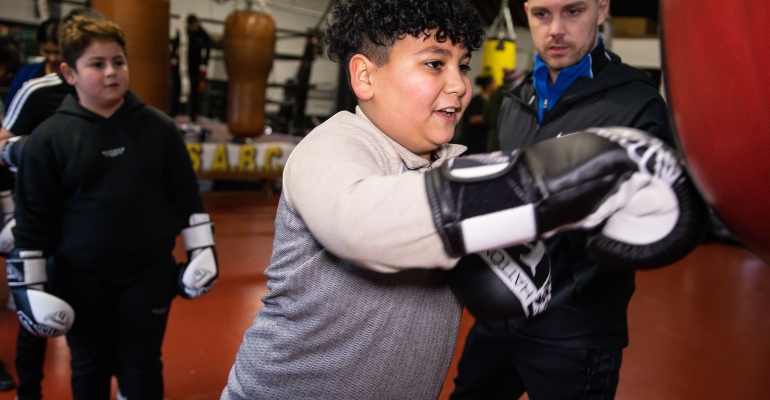
Levelling the Playing Field has linked with a host of partners in Newport to find new ways of supporting children in the ethnically diverse area of Maindee through sport and physical activity.

Tom McIntosh, Operations Director at Levelling the Playing Field’s strategic partners Sport Birmingham, gives his view on the attributes any coach or youth worker must have when it comes to safeguarding.

As part of our focus on safeguarding throughout January, we asked Nikki Miles what the process looks like at our specialist partners Positive Youth Foundation in Coventry.
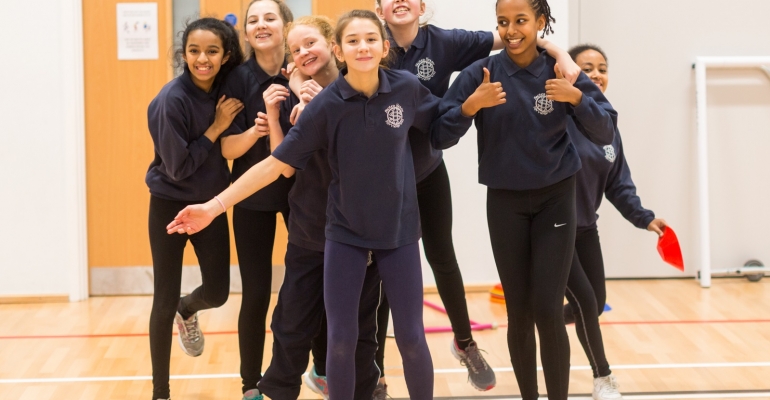
As part of our focus on safeguarding throughout January, we find out how London Sport use the voices and opinions of young people to ensure policy converts into good practice on the front line.

Read how safeguarding of individuals, families and the community runs through the whole philosophy of Levelling the Playing Field's specialist partners NPV Football Development in Wolverhampton.
_medium.jpeg)
We asked our specialist partners Millwall in the Community how their Levelling the Playing Field football sessions achieve positive outcomes for ethnically diverse children in their South London community.
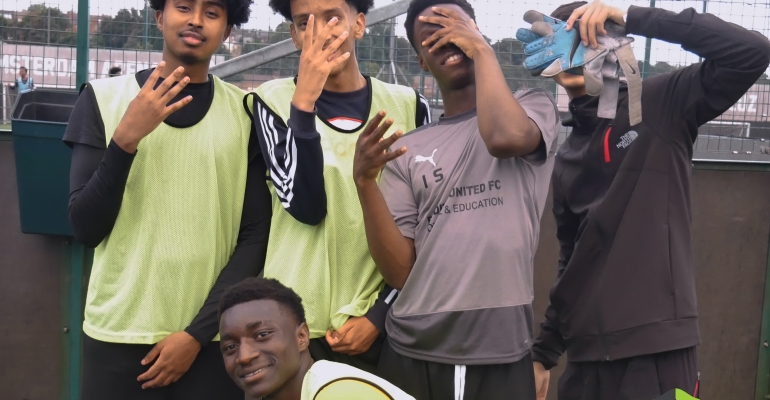
As part of our Sport for Development theme, we asked specialist partners Sporting Elite how their Levelling the Playing Field football sessions achieve positive outcomes for ethnically diverse children in their community.

As part of our 'Sport for Development' month, we asked our specialist partners Fight 4 Change how they use boxing and martial arts to give local young people positive experiences and opportunities - both in the ring and in life.

We sit down with Arnaud and Raya, who deliver Levelling the Playing Field sessions at our specialist partners Palace for Life Foundation, to discuss their impact on ethnically diverse children and their community.

As part of our 'Sport for Development Month', we pick the brains of our specialist partners RUCST on how they use 'the power of the badge' to engage ethnically diverse children and make their community a safer place.
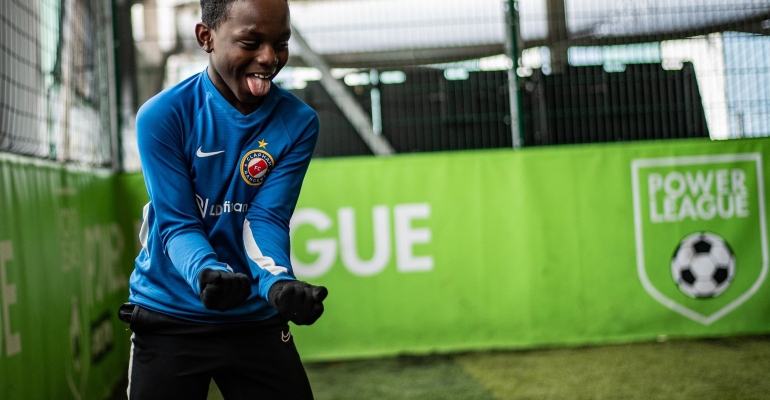
As part of Levelling the Playing Field’s ‘Sport for Development Month’ in December, we hear from our specialist partners Street Soccer London on how they guide young players from the pitch towards progress in many different areas of their lives.

Maindee Primary School, situated in a hugely multicultural area of Newport, has connected with a web of local partners to positively impact ethnically diverse children in their care.

Levelling the Playing Field is delighted to offer CEOs, project leaders and key management staff in our network of specialist delivery partners the opportunity to take part in a bespoke leadership skills programme.

New apprentice Geri Leigh Branigan is proud to be guiding and supporting ethnically diverse children at InPower in Wolverhampton – because she knows herself how vital sport and role models can be.
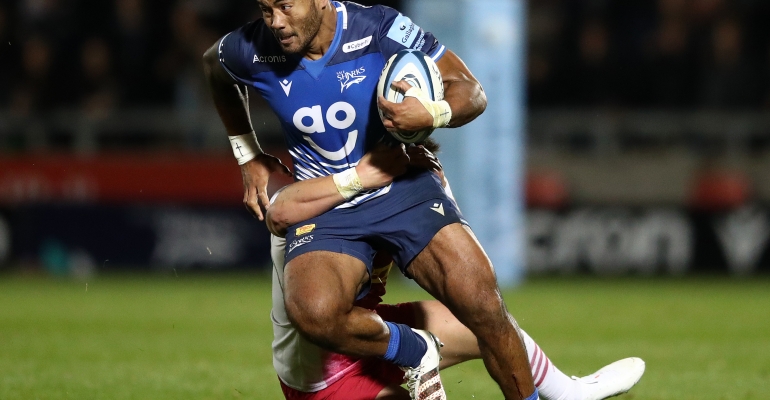
Sharks Community Trust are the latest partners to join Levelling the Playing Field to engage and support young people in custody and post-release through sport and physical activity.
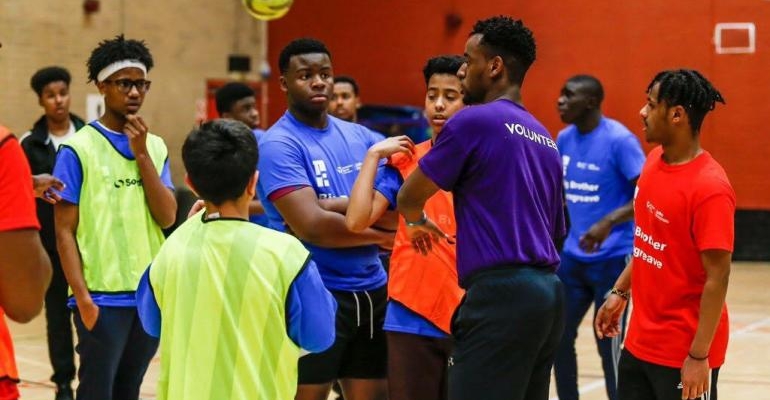
Big Brother Burngreave, our LtPF specialist partners in Sheffield, have a unique approach to nurturing young leaders. As part of our 'Leadership Month, we met Tyrone and Tes to see how it's changed their lives.
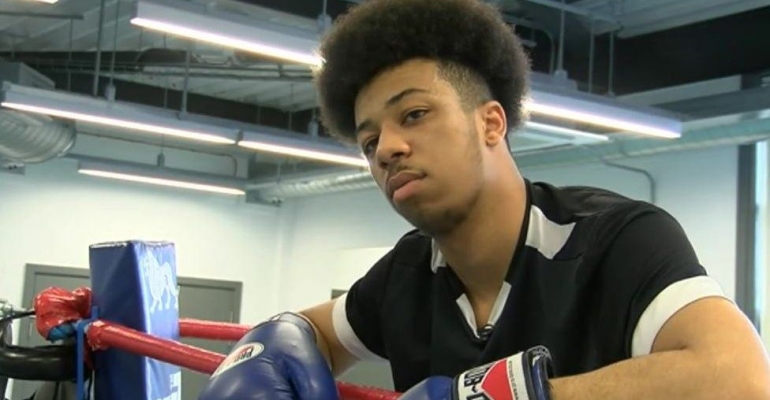
As part of Levelling the Playing Field’s ‘Leadership Month’ we are privileged to meet Neeco and Gulraj, two outstanding young leaders from our specialist partners InPower in Wolverhampton.

Levelling the Playing Field is linking up our local delivery partners in London with Centre of Change Project to provide specialist counselling and mentoring to their young people.
_medium.jpg)
Aptitude Youth, our local delivery partners in Coventry, are training up 10 young people as qualified sports leaders using funding from Levelling the Playing Field.

Emmanuel joined our local delivery partners Aptitude Youth three years ago after arriving in Coventry from Ghana via Italy. He says the staff and his fellow beneficiaries have become “like a second family”.

For Ayathola, Sinokuhle, Keren, Chloe and Exaucee, attending Levelling the Playing Field sessions run by Young Minds Together in Rotherham is more than a weekly dance class; it’s a sisterhood that helps them overcome many barriers in life.
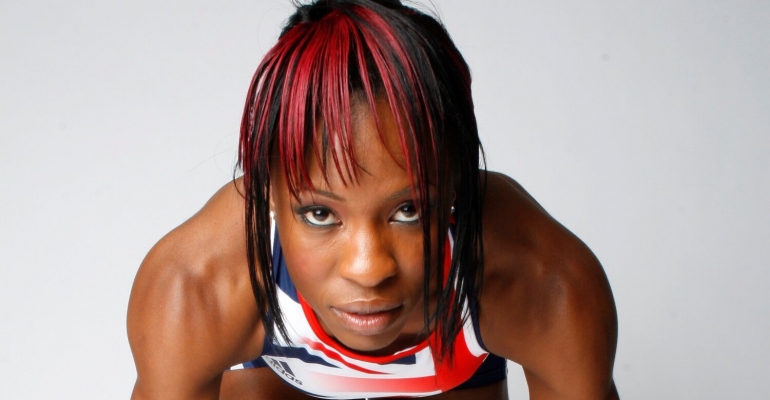
Former Olympic athlete Marilyn Okoro is to lead sport and physical activity sessions with young people in custody as part of a new Levelling the Playing Field partnership.
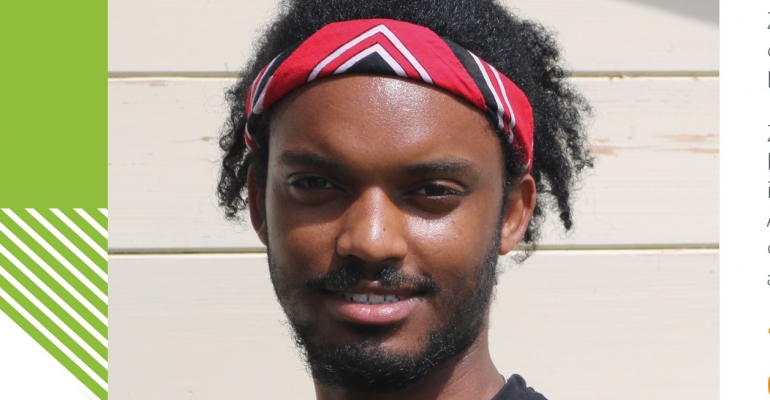
Tamsir Gaye is just starting out as a mentor for our delivery partner Positive Youth Foundation in Coventry - but he has already found a creative way to get his message across to young people.
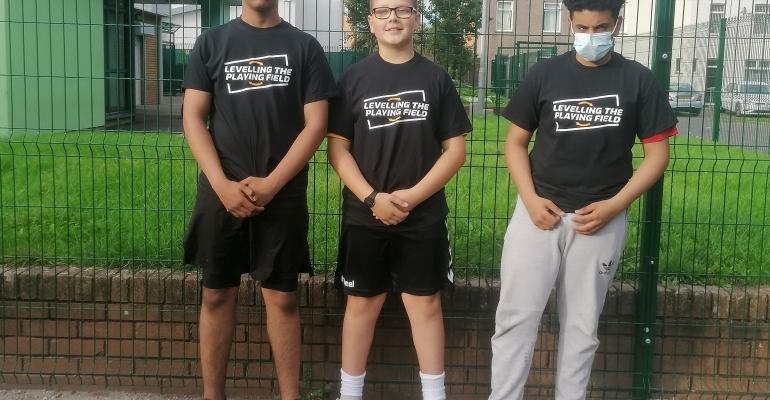
As part of Levelling the Playing Field’s ‘Youth Voice’ month, we visited Newport Live's Friday night LtPF session in the suburb of Pillgwenlly and asked participants Kareem, Hilmee and Raheed about the project's impact on their lives.

The initials in PKC Football Academy stand for ‘Prevent Knife Crime’ - but the aims of our new Levelling the Playing Field delivery partners extend even further beyond that.
_medium.jpg)
As part of Levelling the Playing Field’s ‘Youth Voice’ month, we spoke to Uzo Anosike, a participant at our delivery partners Street Soccer London. The budding young sports journalist told us the impact the organisation has had on his life since he first attended their Levelling the Playing Field session last year.

Tamsir Gaye is just starting out as a mentor for our delivery partner Positive Youth Foundation in Coventry - but he has already found a creative way to get his message across to young people.

Sports Key, our local delivery partners in Birmingham, feel they benefited from the ‘thinking time’ given to them by Covid-19 and have re-emerged stronger post-lockdown.

Our local delivery partner Unity Gym Project in Sheffield offers so much more than an ordinary city-centre gym. It’s a community where young people can find support, motivation and hope.
_medium.jpg)
The pandemic has hit under-served communities particularly hard and our local delivery partners in South Yorkshire have worked tirelessly to support local children who have been severely impacted.

Our local delivery partners Fight 4 Change have emerged stronger from the pandemic by moulding their programmes to meet the increased needs of young people.

The pandemic has led to a big rise in vulnerability among young people and support services have had to be nimble and innovative to even come close to meeting these acute needs.

The pandemic has led to a big rise in vulnerability among young people and support services have had to be nimble and innovative to even come close to meeting these acute needs.

Levelling the Playing Field is to give children inside HMP/YOI Wetherby the opportunity to learn climbing both during their jail terms and as part of their resettlement into the community.

Support from youth services has never been more needed than in the last 18 months, but Covid restrictions and dwindling resources have made it tough to meet demand. Money from Sport England’s Tackling Inequalities Fund (TIF) has therefore been a lifeline for many of Levelling the Playing Field’s local delivery partners.

Levelling the Playing Field partners and Gwent Police have joined forces to stage the Community Cohesion Cup - breaking down barriers and building trust between ethnic communities and local services.

Young refugees and asylum seekers often arrive in Newport having experienced conflict and trauma in their homelands, so when the Sanctuary project engages them in sport and physical activity, it's to achieve two very simple outcomes: to get them “sweaty and smiling”.

Palace for Life Foundation have joined Levelling the Playing Field as a local delivery partner and Angel O’Dwyer, who will be working on the project, has all the makings of a perfect role model for our participants.

Millwall Community Trust are the latest addition to our Local Delivery Partners in London. They have been using sport to achieve positive social impact in their local community for over 35 years.
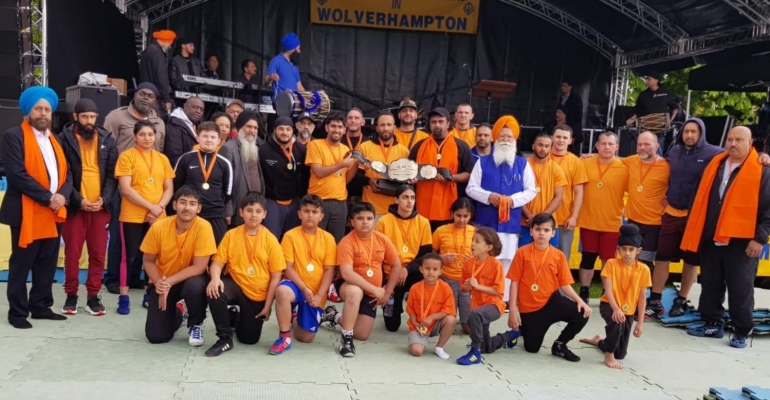
Our local delivery partners Wolverhampton Wrestling Club have launched a project to engage autistic children in sport and physical activity.
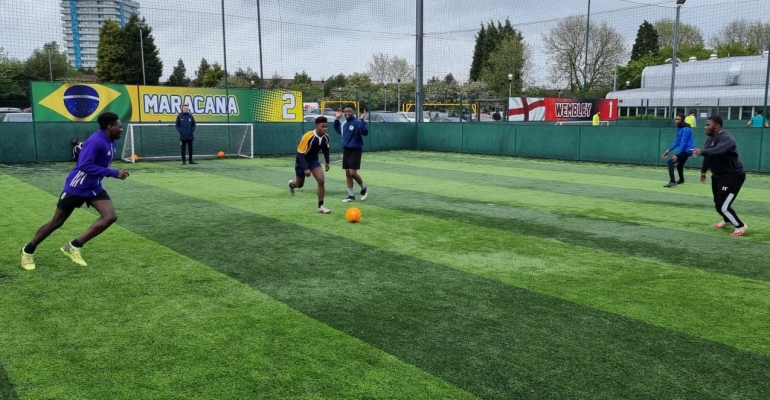
Participants at Levelling the Playing Field sessions run by Aptitude Youth, our local delivery partners in Coventry, are set to become leaders for the next generation.

Warwickshire Cricket Board have joined Levelling the Playing Field as a Local Delivery Partner – and their projects targeting specific communities are set to enrich our evidence base.

Exiles Together is a brilliant partnership between Newport County FC and the ethnically diverse community right on the club’s doorstep. Their activities promote diversity, inclusion and diversion from crime through the power of sport.

Tess Awoke says being part of an ethnically and culturally diverse ‘brotherhood’ at Big Brother Burngreave in Sheffield has helped give him a sense of identity, connection and purpose.
_medium.jpg)
We are proud to have Sithule Mguni as a Local Delivery Partner on Levelling the Playing Field. Her organisation, Young Minds Together, uses performing arts to empower girls from ethnically diverse communities in Rotherham to overcome many barriers in life.

Young people at Fight 4 Change’s Levelling the Playing Field sessions on Wednesday nights in Lambeth will receive coaching, guidance and support from the very best in the game.
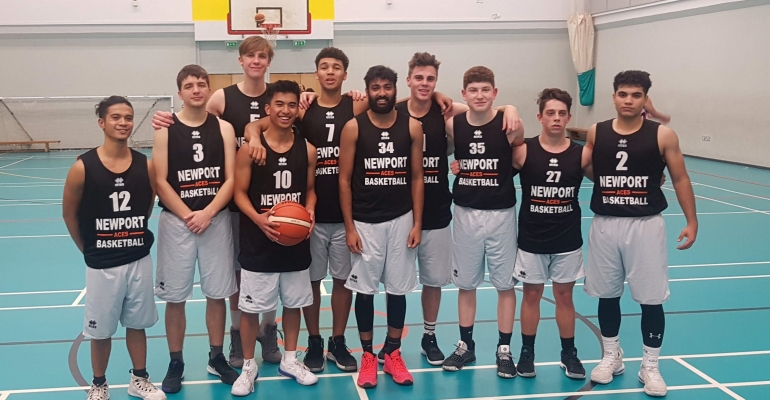
Newport Aces are the latest Local Delivery Partner to join Levelling the Playing Field in Gwent. Their founder, Asa Waite, has a great phrase to sum up the issues his community basketball club tries to tackle with children in the area.

Mentoring has had a profound effect on Keanna Arnett’s life – and Levelling the Playing Field’s support for mentors is set to spread that positive impact across our four delivery areas.